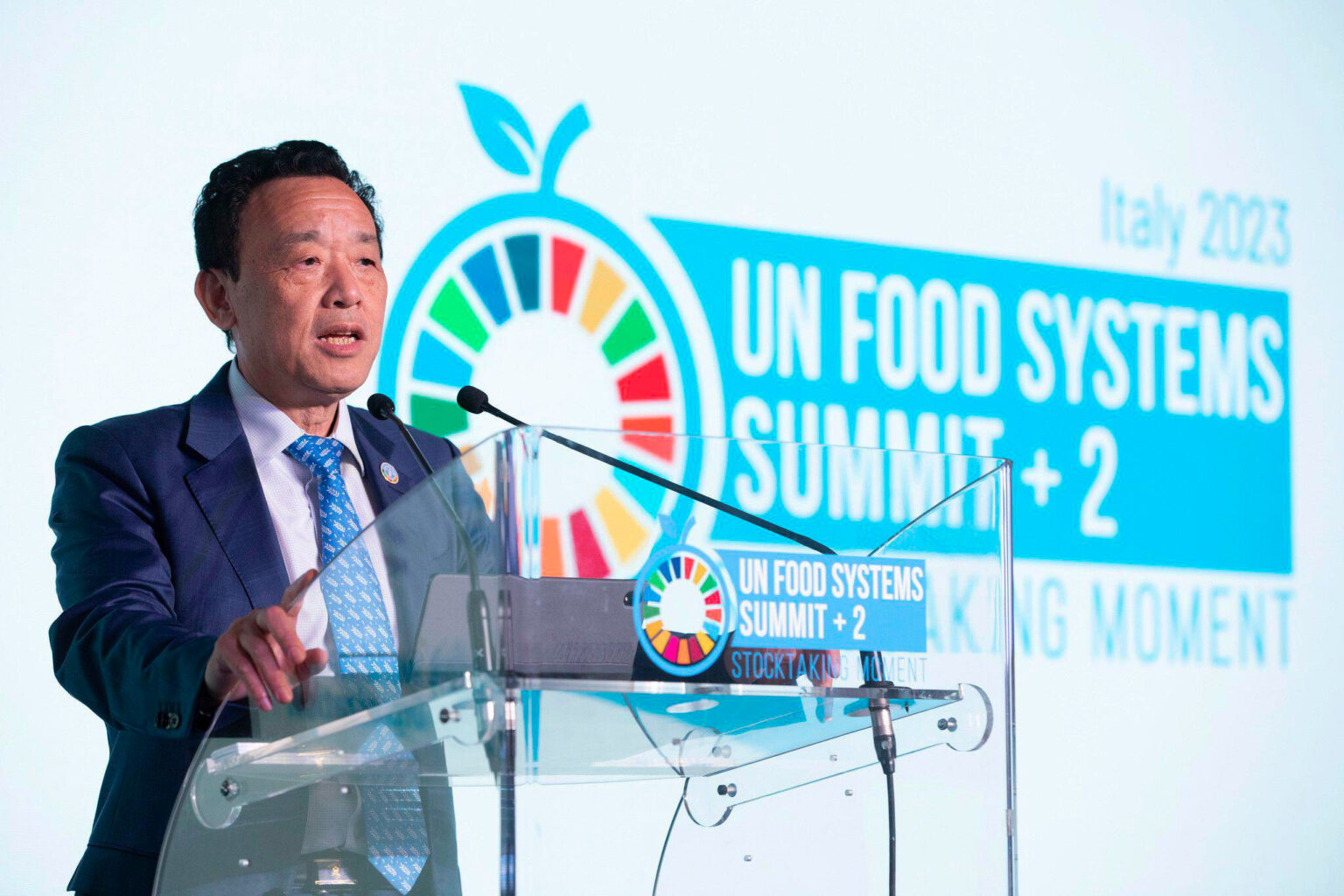Indigenous peoples, smallholder farmers and academics have claimed that a UN summit focused on the future of agriculture helped to entrench corporate control over the global food system.
The UN’s Food Systems Summit “Stocktaking Moment” (“FSS+2”), held last week, came as countries look to slash agriculture’s climate footprint in the runup to the COP28 summit in December.
Agriculture generates 34 percent of the world’s anthropogenic greenhouse gas emissions, according to the UN’s own Food and Agriculture Organization.
However, last week’s Food Systems Summit illustrated the rift between agribusiness giants and smaller food producers about how to transform the food system to achieve these cuts and address hunger, malnutrition and biodiversity loss.
Dominant firms like Nestle, Unilever, Bayer and fertiliser giant FMC have used both summits to elevate “solutions” that they are uniquely placed to provide, including “precision agriculture” and increased pesticide and fertiliser use.
According to Saúl Vicente, a member of the International Indian Treaty Council, which advocates for the rights of indigenous peoples, by platforming these “solutions” the Food Systems Summit was simply a “rebranding” exercise for companies wanting to preserve environmentally damaging industrial agriculture techniques.
“The UN Food Systems Summit has not only overlooked our rights and the structural causes of the crises,” Vicente said, “the intention of the summit organisers is to sell us the corporate and industrial project as transformation.”
‘Prioritising Stakeholders’
Ahead of the UN meeting, members of the People’s Autonomous Response to the UN Food Systems Summit – a group of indigenous and smallholder food producers that advise the UN on hunger and food security – held a press conference on the growing influence of industrial agribusiness in global food system governance.
The People’s Autonomous Response claims that the UN has failed to address concerns raised at the first summit in 2021 that the process had been captured by corporate interests, and says that the previous event marginalised countries from the Global South in particular.
The group claims that global participation was widened only after priorities had been set during the 2021 summit, which was dominated by larger food producers. The People’s Autonomous Response claims that big corporations were therefore allowed to design a system that primarily benefits their interests.
Industrial agriculture contributes to deforestation, water pollution, biodiversity loss, and considerable methane emissions.
It’s also heavily reliant on fossil fuels for vehicles, pesticides, fertilisers, and the transport of food – and often subjects workers to low wages, insecure employment and dangerous working conditions.
Yet, the industry still seeks to “solve” the very problems it’s causing, according to critics.
Jennifer Clapp, a professor of global food security and sustainability at the University of Waterloo and a member of the UN Food System Coordination Hub’s Scientific Advisory Committee, said that this year’s UN Food Summit failed to consider the root causes of the industry’s issues.
“It was so similar to the first summit in 2021, where in the run up the messaging was like, ‘We don’t want to harp on the past; we need to be forward looking and solution-oriented’,” Clapp told DeSmog. “But you can’t know what the solution is unless you understand the problem, which often means learning from past experience.”
When it comes to solutions, agribusiness giants typically favour intensifying existing agricultural practices and scaling up the use of technology to produce food. Many smallholder farmers and indigenous peoples groups are calling instead for a shift towards more environmentally friendly agroecological approaches, and worry that increasing the power of big companies will exacerbate existing failures of the global food system.
Patti Naylor, a farmer and member of the National Family Farm Coalition, said that farmers were being encouraged to increasingly rely on data under the moniker of “precision agriculture”: the use of drones, robots, sensors and other technologies to gather massive quantities of data on the health of crops, soil, and livestock.
This data typically isn’t owned by farmers. Instead, it becomes the property of large private companies, which Naylor fears will make farmers reliant on their technologies.
“Huge, huge amounts of data are already being collected, mostly by the private sector, on land, seeds, livestock, production methods, consumer behaviour,” she said. “In fact, every aspect of our food system, from production to consumption, is a target for the collection of data that is then monetised, with profits going to the corporations, not to benefit the food producer, nor the consumer, nor to end food insecurity.”
The emphasis on “digital” and “precision” farming models – both of which are included in the Food Summit’s official programme – shows how “the whole summit and the whole system is prioritising stakeholders over rights holders,” said Clapp.
“That is problematic when we’re seeing such incredibly high levels of hunger and undernutrition, and huge power imbalances in the system,” she added.
The UN Food Systems Summit did not comment on the record.
Subscribe to our newsletter
Stay up to date with DeSmog news and alerts







